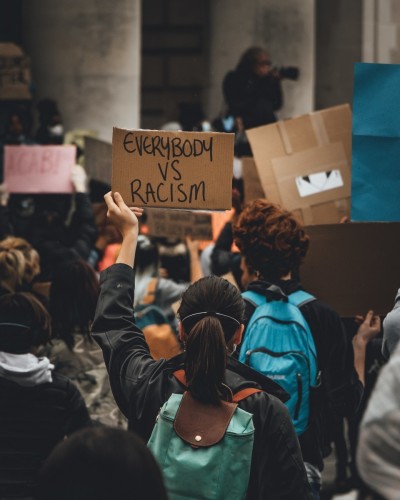Why use of the 'R' word needs to stop

The use of the “R” word needs to stop. The “R” word, or “racist,” has become the go-to accusation for any unpleasant interaction between blacks and whites.
Racism or racist used to describe someone who discriminates against another because of the color of their skin. Today, it's become synonymous with rude or inadequate or inconsiderate or incompetent or any other behavior we don’t understand or like.
We abandoned reason and critical thinking and go straight for the nuclear option — and the “R” word has indeed become the nuclear option. What happened to the days when we just considered someone rude?
According to the American Library Association's definition, calling someone the “R” word should be considered hate speech. It's dehumanizing and indefensible. It's used to intimidate or silence people who don't agree with a particular point of view.
The ALA says while there’s no legal definition of “hate speech.” Hate speech vilifies, humiliates, or incites hatred against someone because of their race, religion, skin color sexual identity, gender identity, ethnicity, disability, or national origin.
How often is the “R” word lobbed at a white person based on the color of their skin?
Because critical race theory (or equity or social emotional learning or culturally responsive teaching, or whatever euphemism you prefer) teaches racism is present in every interaction in society, and progressives happily perpetuate the narrative, we’re conditioned to see racism where it may not exist. If you’re black and you're unhappy with the outcome, you must be a victim of racism.
We tend to go for the most extreme explanation and discount anything in between. What if you’re dealing with someone who’s not a racist and is just rude?
My experience in the grocery story store is a classic example. After a white cashier finished ringing up a white man, she looked at me (a black woman), closed her cash drawer, and took off without so much as a nod.
Giving her the benefit of the doubt, I waited to see if she planned to come right back. She didn’t. I was irritated but asked another employee, who happened to walk by, to ring my order. He sought out the cashier, who was just out of my line of sight, and I heard him tell her she had a customer waiting at her register, to which she dismissively replied, “Yeah, I know.” But she still did not return to the register.
Then I got mad.
I spoke to the store manager, told him what happened, and concluded with “If I am treated like this again, I will do my shopping elsewhere. You need to teach her how to treat customers.”
He apologized. And that was the end of it. But in many cases today, it wouldn’t have been.
Because she is white and I am black, in today’s culture, many would conclude the cashier is a “Karen” or racist.
The optics certainly were not favorable for her.
But how could I unequivocally determine her actions were racially motivated?
I couldn’t.
Truth is, you can’t always determine whether someone’s actions are racially motivated, which is why the "R" word is so harmful. It calls someone's character into judgment and can ruin a reputation, often times with little to no proof.
If a better qualified white person is promoted over a black person, is it racist?
If a white employee brings fried chicken to an office potluck, is it racist? If a police officer pulls me over, should I automatically assume it’s because I’m black even if I am speeding?
Did that cashier commit unconscious micro aggression and behave with racial bias without knowing? Perhaps. But, if she had been black and behaved the same way, what would I call her? Are white people only rude to other white people but the "R" word when they’re rude to black people?
Was the cashier rude because I’m black? I have no way of knowing. But to go straight to DEFCON 1 and call her a racist, isn’t helpful to anyone. It divides us and raises suspicions among people.
Racism and racist people do exist in America. They always will. But every white person who insults or disagrees with a black person is not a racist. And every black person who does not experience a favorable outcome is not a victim of racism.
Let’s get back to treating each other as fellow Americans who are sometimes rude and inconsiderate or disagreeable. If someone’s rude, call them rude. If someone tells an off-color joke, roll your eyes, say they have poor judgment and ask them not to say it again. Let’s tailor our responses to fit the offense.
Hopefully, that cashier will get coaching and an opportunity to make some changes. And I hope we will stop hastily using the "r" word and consider the many other options beyond race to explain an unpleasant situation.
This article first appeared in Alpha News.
Sheila Qualls is the Executive Director of TakeCharge, a nonprofit organization that seeks to restore the two-parent black family and unite Americans towards shared values regardless of skin color or station in life. She is a former national speaker and Marriage and Family columnist at Patheos.com. She and her husband, Kendall, a former gubernatorial candidate in Minnesota, have been married for 36 years and they have five children.



























